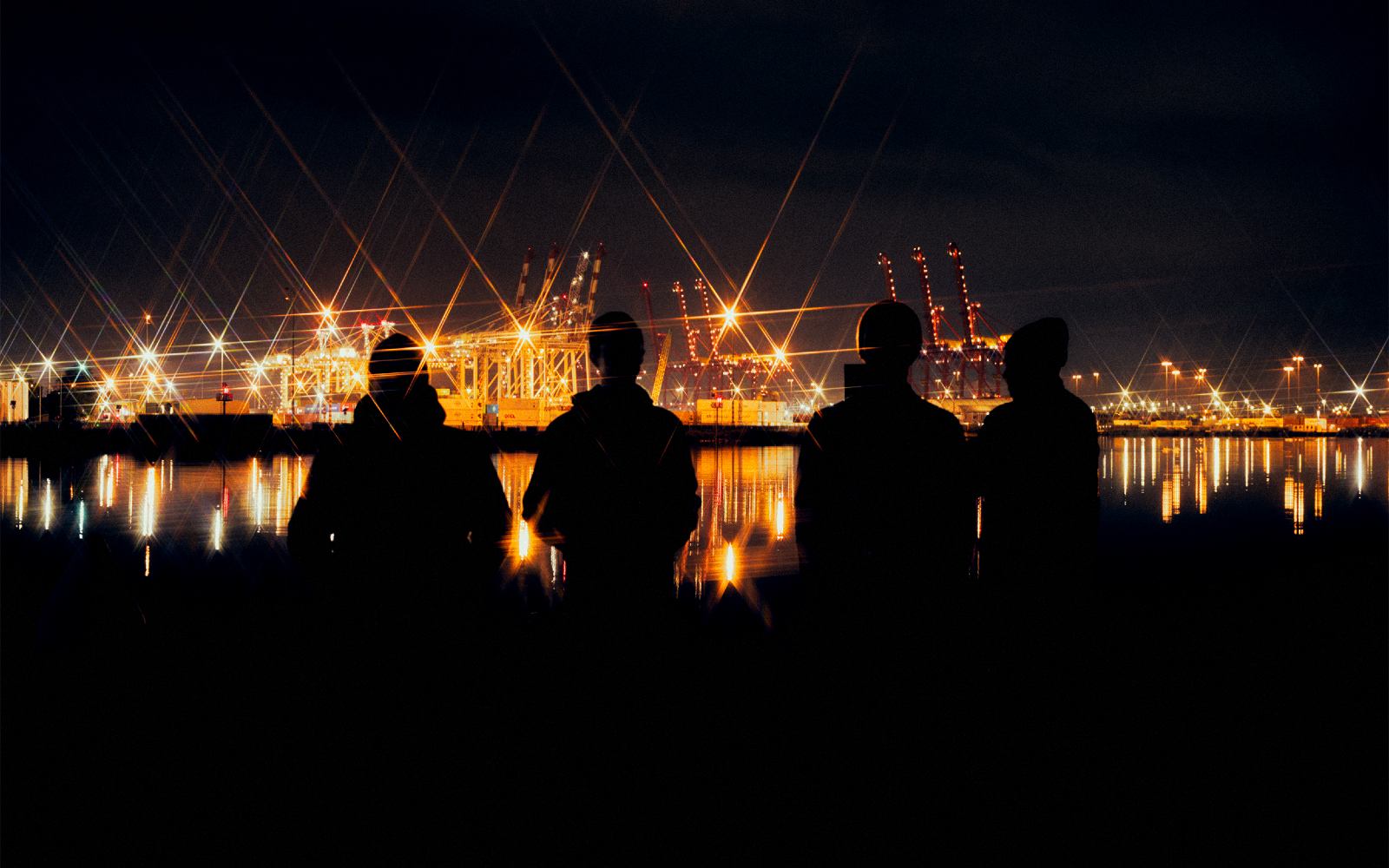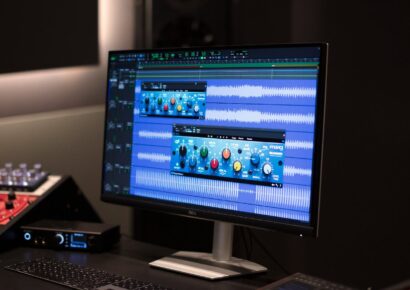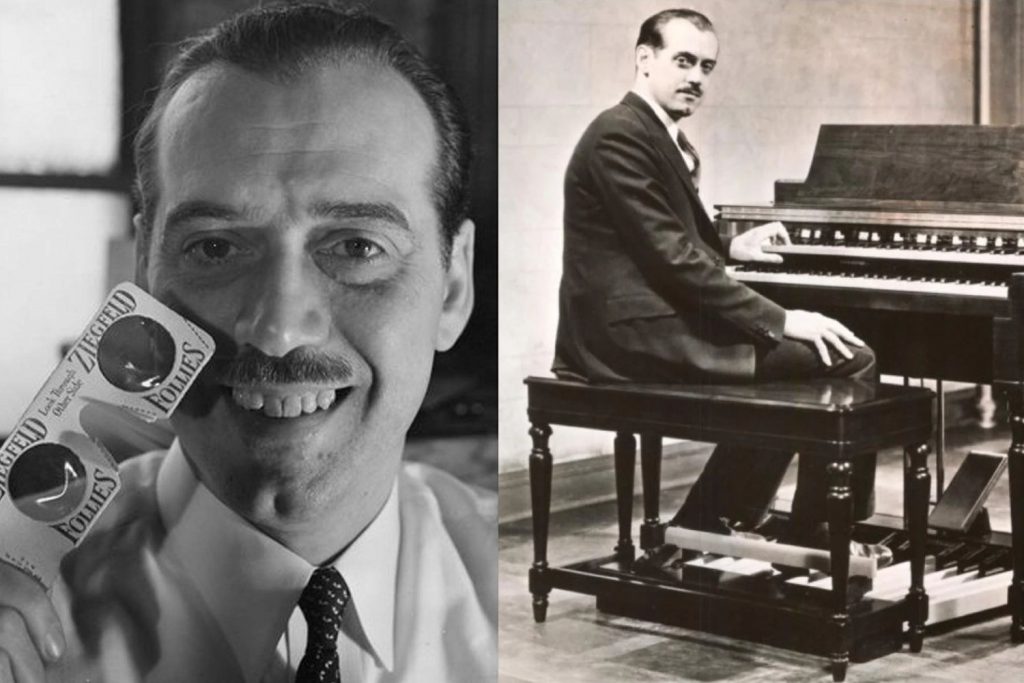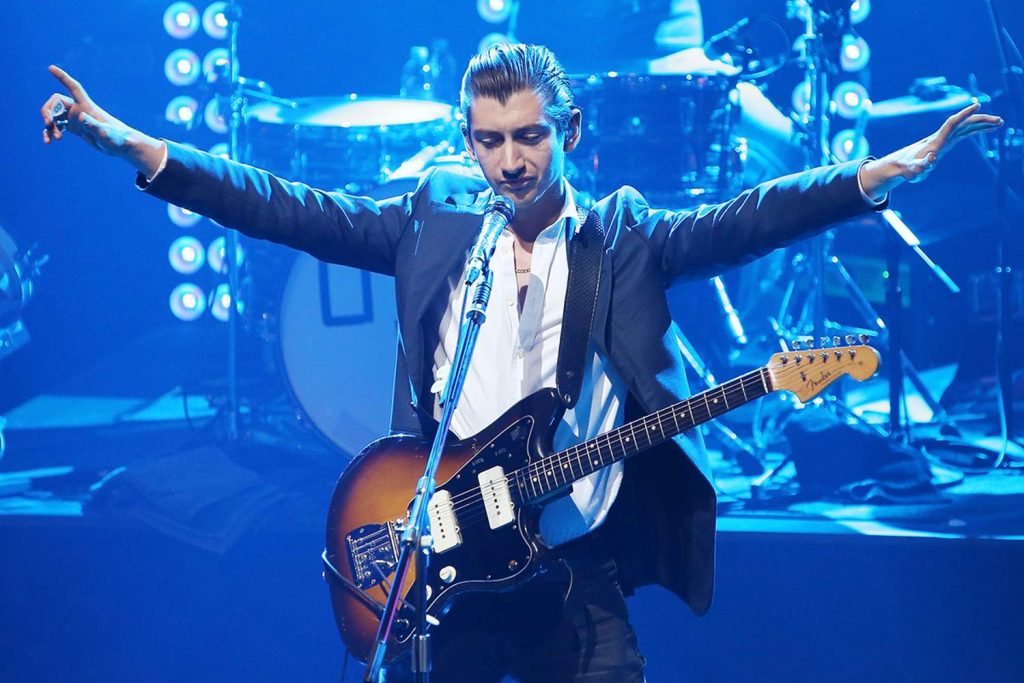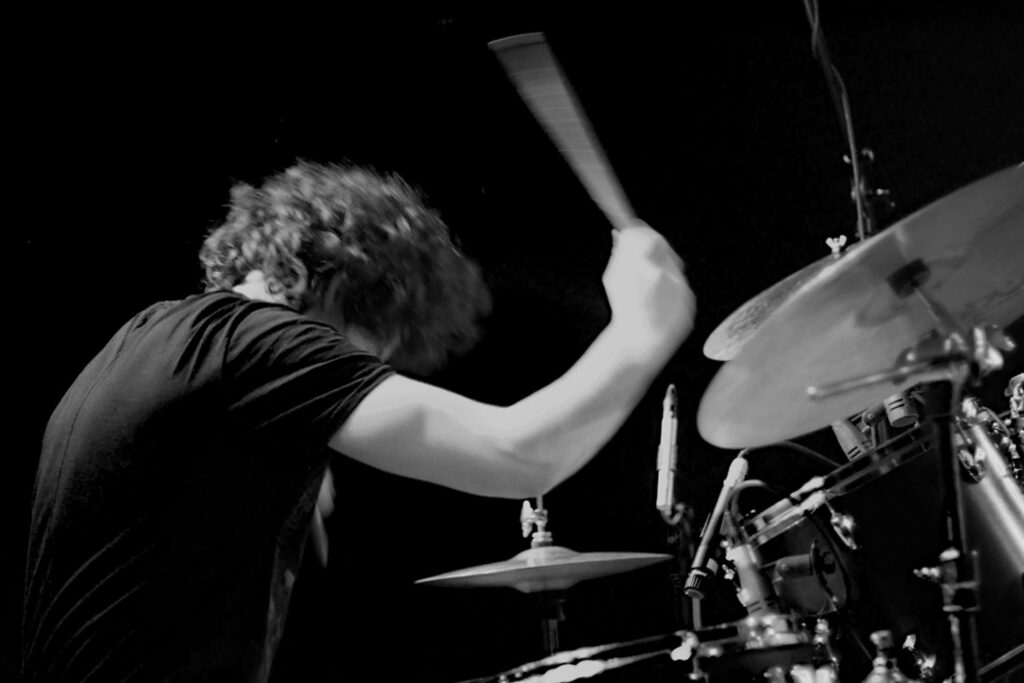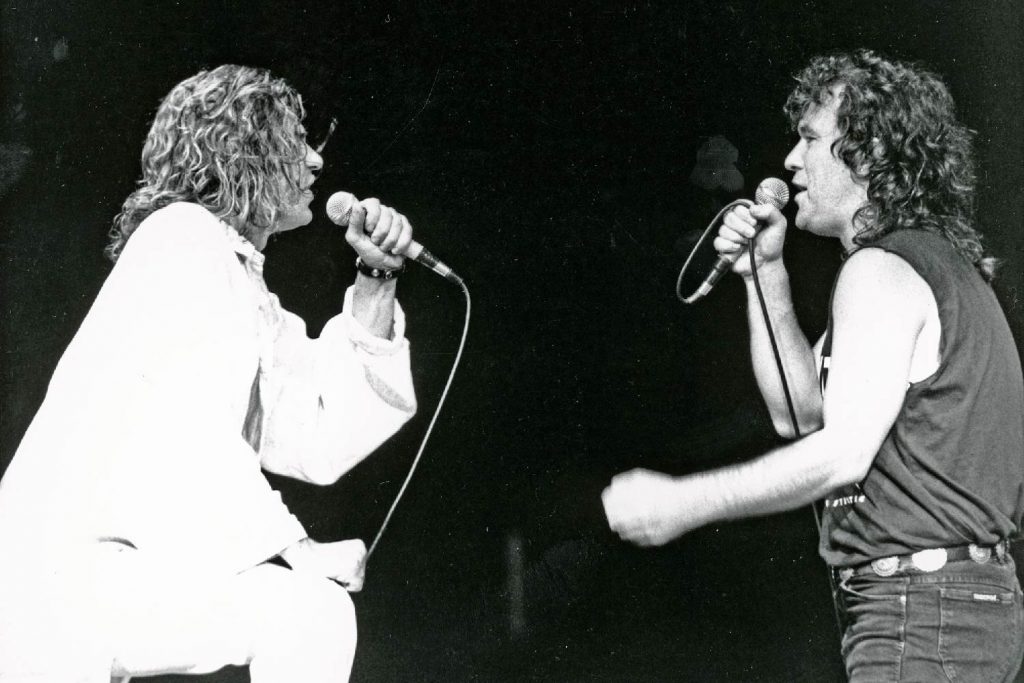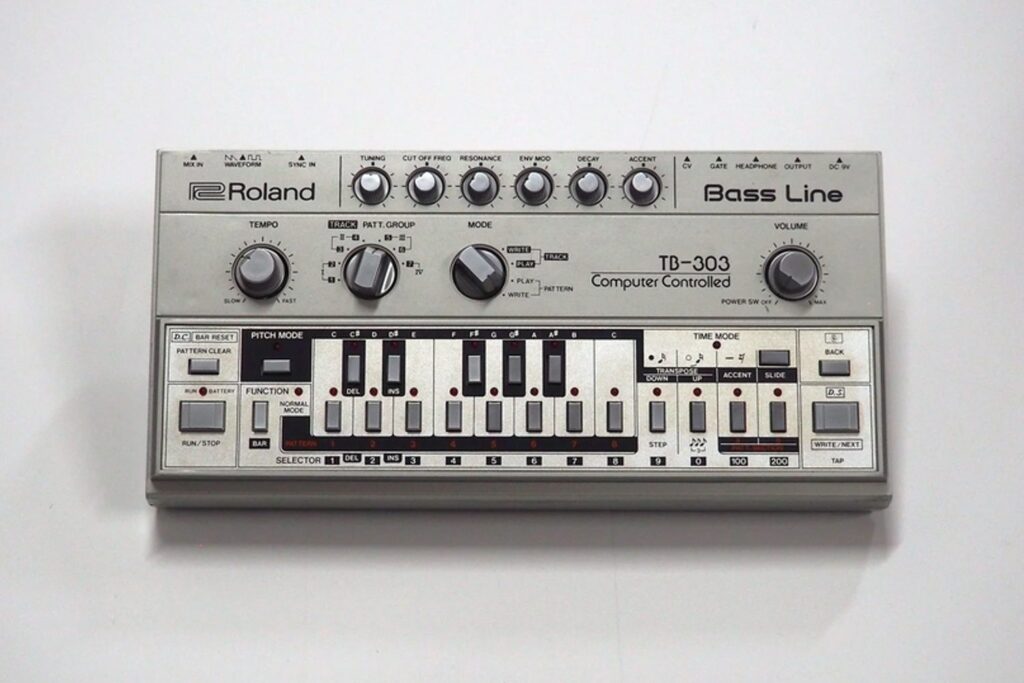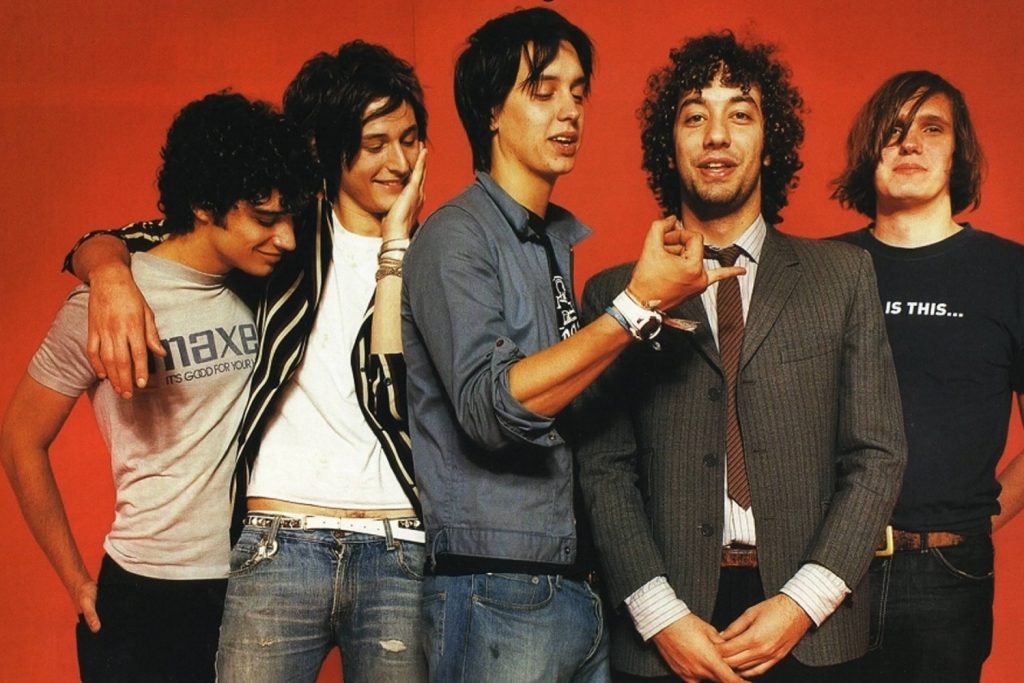With a world of plugins, technology and editing available, sometimes the lack of limitations can cause analysis paralysis. This wasn't a problem for Rūmĭnor.
Rūmĭnor was born from a simple enough idea; to perform and record an album live on the floor of Hobart’s Frying Pan Studios. The catch? They’d do it using just the eight faders of the ex-Abbey Road REDD.17 recording console that serves as the heart of the studio’s control room.
EMI REDD.17 recording console
The idea brought together four artists in their own right to create one fresh, cohesive recording. Writing sessions began shared between artists from different areas of ambience: duo Namazu, and solo artists Sam Haven & Saleeha.
“I had the idea.” begins Brett, one half of Namazu. “I’ve done a few records with my friend Gerard, and we like doing things that push us a little bit?” he says, motioning to introduce Gerard, the other half of Namazu.
“I had become a fan of Max (Saleeha)’s stuff, and Sam (Haven)’s stuff, and just wanted to do it. I thought ‘What would happen if I got these two guys that Gerard’s never met before?’” he continues.
Read up on all the latest interviews, features and columns here.
“I didn’t know if Max and Sam had a relationship. ‘What if I got four strangers, gave them six months to write a record and then gave the restriction of: ‘We’re gonna record within the parameters of that desk’, which is only eight tracks.’ So everything we wrote, we had to consider that we only have eight tracks, which was more freeing than anything else. Well… I found it freeing.”
The resulting album, Flew Mirrored on the Water, was written over six months.
“-ish?” Brett muses, turning to the rest of the band.
“Yeah, I feel like we were getting together once a week for three or four months, leading up to actually recording it.” explains Max. “Each of us came to the table at some point with a couple of ideas ready to go. That launched a few songs.”
“I guess a lot of the songs came out of simpler ideas, or simpler bits and there wasn’t much of a huge idea of structure past that.”
Max continues, saying they’d begin with an idea, and see what they could get done within the limitation of the time they’d agreed to meet up. The group would let the songs bring themselves together by feeling out where they seemed to be wanting to go.
We discuss the limitations that the group had set themselves; they had to think their way out of the box, forcing them into making it work one way or another.
“The nature of this style of music, you can disappear forever, you can work on this kind of thing until the end of time.” Brett laughs. “So having those constraints early on was very freeing. ‘This is what it’s gonna be. This is how long we’ve got to do it, and we’re leaving MONA with a recorded and mixed record in two days.’”
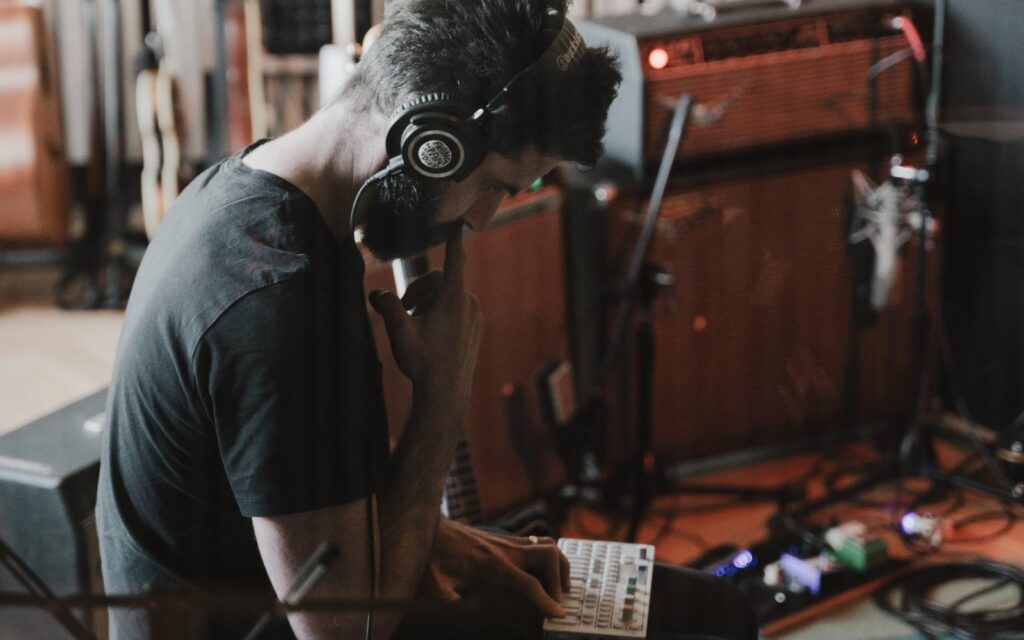
Image by Max Buchanan
A tall order for sure, but the record stands on its own two feet, finished, mixed and now out in the world. A testament to the skill and professionalism of the four artists involved.
“Brett and I have been working on two albums,” begins Gerard. “Only one of which has come out. The time it took to finish them was five and six years.” he concedes.
“And because they were these records involved interviews with 30 people and there’s Namazu field recordings from 3 different locations that all needed to be made into one piece of music, the time we’d spent recording was like one day.” he explains, to a laugh from Brett.
“The time we spent editing was five years! So this project seemed really attractive, at least to me.”
Max shifts into explaining the writing and planning process, stating that the band was ultra prepared at every stage, mostly because they had to be. They learned to understand when an idea had legs, but also how to reign it in to keep themselves on track, and see problems further up the path.
Further aided by their own limitations, the band knew that the songs had to ultimately be playable in order to be recorded on the famed Frying Pan tube console.
Rūmĭnor proudly confirm there was barely any EQ in the mix, entering the studio session with Chris on the first day knowing they had to get things right at the source.
Frying Pan Studios
“Day one took a bit of setting up, because none of us had met Chris (Townend, Frying Pan’s head producer and engineer).” says Brett. “This had to be mixed as it’s going in, so set up of the room, [musician] placement in the room, set up of room mics and stuff [was] dictating how it was gonna sound before we even started.”
Again, the limitations the group had placed on themselves informed acoustic choices including piano placement in the room, as well as making sure there wasn’t any extraneous bleed between musicians or things like pedals clicking, especially important as the room itself played a huge part in the sound of Flew Mirrored on the Water.
The conversation naturally shifts to the group’s individual sounds, each member allowing the others to set their amps and instruments how they chose, enabling each artist’s voice to shine through.
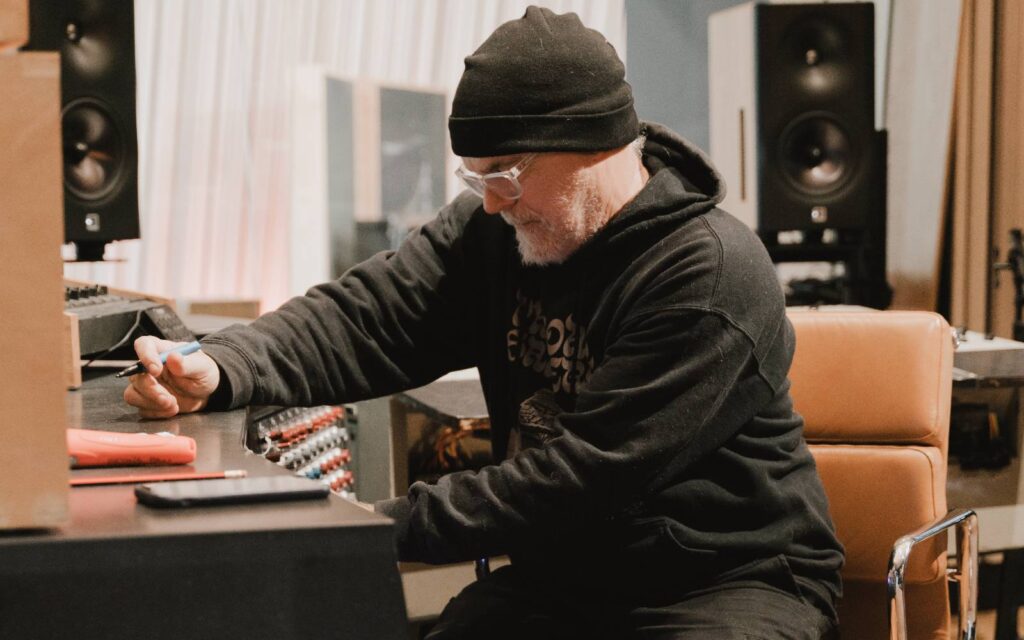
Image by Max Buchanan
“That was really unspoken,” begins Max. “I think we found our way. Obsessing over guitar sound or bass sound, it wasn’t something you really thought about.”
Brett clarifies that they entered the studio and used the Frying Pan Studios backline, not knowing what amps they were going to use on the record until the first day. For Brett, that was part of the charm of the process.
“It’s gonna be what it’s gonna be, y’know?” he says. “The unknown was what was the most exciting part. ‘This could be the biggest failure ever, or this could be a great couple of days.’ and it was a great couple of days.”
“I think it’s interesting… tone is in the fingers,” says Gerard. “But also in the enormous pedalboards.” he laughs.
Gerard chats further about the difference in approach between the members, Gerard rocking up to the sessions with a pedalboard filled with his favourite effects and gain pedals that help him achieve the sound he’s hearing in his head. Sam, however, had a handful of pedals and, living in a different state to the other guys, hadn’t played as much live with the band. Sam took the approach of letting the session, energy and vibe dictate his performance, not an approach Gerard would usually take.
“He nailed it.” Gerard clarifies. “But his ethereal guitar parts are really cool. They weren’t there in the rehearsals, so that’s nice to hear. Some parts he did that we hadn’t done before, were just in the room at the time.”
To close, we chat about how important it is to allow people to do their own thing and express themselves in the pursuit of making something truly original. Each member has allowed the voice and identity of the others to shine through, culminating in a cohesive and unique recording.
Flew Mirrored on the Water is out now and available on Bandcamp. It was recorded and mixed at Frying Pan Studios by Chris Townend Dec 16 & 17 2023, and mastered by Dav Byrne at Iridium Audio.
